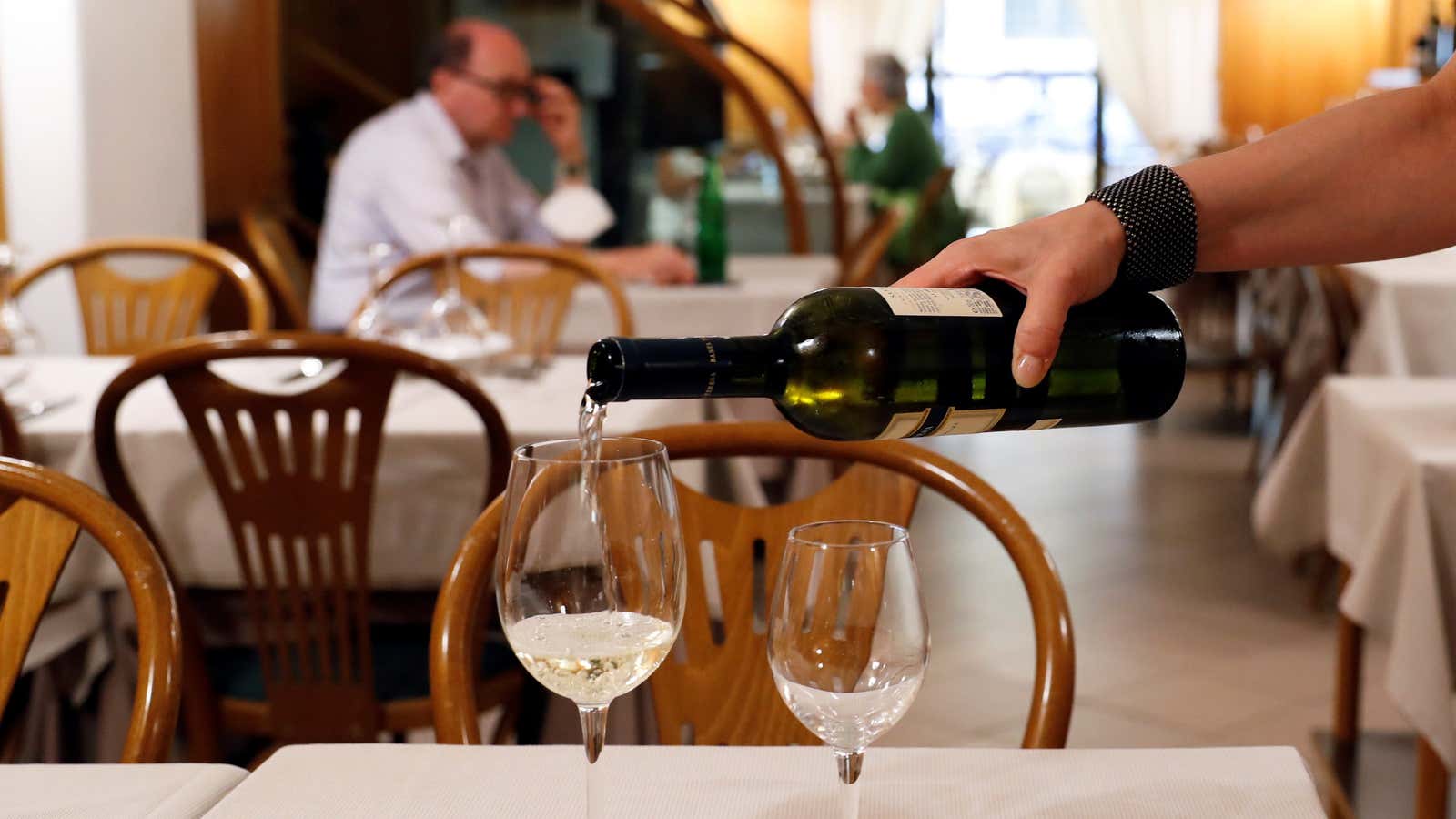New York City is now the first in the US city to issue a vaccine mandate for certain activities, requiring people to present proof of vaccination in order to access indoor dining, indoor gyms, and indoor performances. The new requirement will be phased in beginning mid-August. “If you want to participate in society fully, you’ve got to get vaccinated. It’s time,” mayor Bill de Blasio said in a tweet announcing the new policy.
With this move, New York City joins a number of European countries that have made vaccine passes a prerequisite for participation in indoor leisure and entertainment activities. Austria, Denmark, Germany, Italy, France, Latvia, Lithuania, Ireland, and Slovenia are among the countries that require either proof of vaccination or a negative Covid test for indoor venues.
Europe’s vaccine passes are increasing vaccination rates
The introduction of these policies comes as the delta variant causes Covid-19 cases to rise in the US and western Europe. The evidence thus far suggests that vaccine passes in Europe are successfully persuading some people to get their shots.
The Italian media is referring to the increase in vaccinations after the vaccine pass rollout as the “Draghi effect,” a nod to Italian prime minister Mario Draghi. Italy’s emergency coronavirus commissioner said that in the 24 hours after Draghi announced that people would need to present what’s known as “green pass” to enter venues like gyms, museums, movie theaters, and indoor restaurants, the country booked at least half a million new online vaccine appointments, with demand increasing anywhere from 15% to 6000% depending on the region.
Meanwhile, the AP reports that in France, “nearly 5 million got a first dose and more than 6 million got a second dose in the two weeks after president Emmanuel Macron announced that the virus passes would be expanded to restaurants and many other public venues. Before that, vaccination demand had been waning for weeks.”
Requirements can get the vaccine hesitant off the fence
For people who are staunchly opposed to getting a vaccine, the idea of giving up indoor dining or concerts—while perhaps painful—may not provide a sufficient incentive. But the introduction of new restrictions may well provide a nudge to the vaccine hesitant, people who are on the fence but not necessarily committed to never getting a shot.
In the US, about two-thirds of adults have had at least one vaccine dose, while another 12% say they want to “wait and see” before getting vaccinated, according to a June poll from the Kaiser Family Foundation (KFF). The same poll found that about 40% of the “wait and see” group said they would be more likely to get vaccinated if doing so was required to fly on an airplane or attend large gatherings. Making such requirements a reality could well be the motivation many people in this group need.
Meanwhile, the 13% of US adults who say they will “definitely not” get the vaccine wouldn’t be any more likely to change their minds in the face of airline or large group requirements, according to the KFF poll. There certainly will be people, in Europe, New York City, and wherever else vaccine passes are introduced, who will refuse to get a vaccine even if it means being shut out of some indoor activities, just as there are people who have been unmoved by financial incentives to get one.
Why vaccines passes are controversial
Vaccine passes can be controversial—so much so that some US states have already banned businesses and government agencies from requiring documentation.
Thousands of protestors in Italy and France have turned out to voice their objection to vaccine passes, whether because they are worried about vaccine safety (although rigorous testing and research has ensured that government-approved vaccines are indeed safe) or because they see the passes as forcing unvaccinated people into the category of second-class citizens. De Blasio’s announcement today is sure to face resistance from some New Yorkers, too.
There are certainly issues worth discussing when it comes to vaccine passes. Among them: How to account for children not yet approved for Covid-19 vaccinations (New York City says it plans on providing reasonable accommodations), and how to alleviate the burden that asking for proof of vaccination will inevitably put on frontline service and retail workers, who’ve already dealt with plenty of customer blowback, and even violence, for enforcing mask rules.
It’s also worth noting that the share of vaccinations among Black and Hispanic people in the US is lower compared to white populations, and among low-incomer people compared to higher-income people. In both cases, there are structural reasons for these disparities. Black and Hispanic people have good historical reasons to distrust the US medical system, while low-income people may have trouble finding time to get the vaccine given work, childcare, transportation issues, and other logistical challenges. Cities weighing vaccine passes should take seriously concerns over how mandates could impact people who already are marginalized, and continue taking steps to make both the vaccine and information about its safety widely accessible.
An imperfect but useful tool
Vaccine passes aren’t a silver bullet. They are one of multiple strategies that policymakers will need to consider in the effort to fight the spread of Covid-19 while avoiding lockdowns.
But amid growing concerns about how the highly contagious delta variant is creating a “pandemic of the unvaccinated,” in the words of Centers for Disease Control and Prevention director Rochelle P. Walensky, they may be one way to help curb hospitalizations and deaths among people who who aren’t protected against the virus, while permitting people who do have protection to enjoy the vaccine’s benefits—even if they’re wearing masks while they do it.
